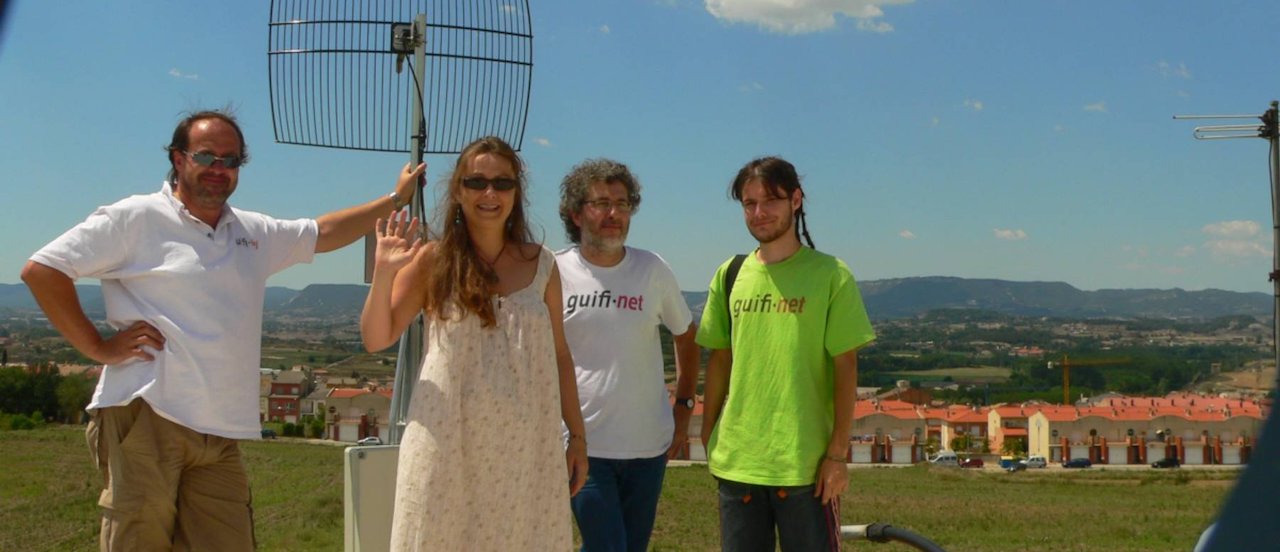Amid the global spread of COVID-19, the exceptional strict confinement to our homes offers important lessons about the urgency of bridging the digital divide.
Where I live, in Osona (rural Catalonia, northern Spain), 15 years ago there was no Internet access. Commercial operators said it wasn’t profitable. So, we set up a community network, Guifi.net, initially with radio connections, and in 2009 we deployed fiber optics. Today, we have connected many small towns and have more than 200,000 estimated users.
According to the National Statistical Institute, Osona County leads with the percentage of households with a computer: 82.5%, exceeding the Spanish average of 69.8%.
Connectivity has broken rural social isolation, connected our schools and hospitals, and it is helping people face this emergency situation. People can access multiple interactive channels to inform themselves without leaving home. Without connectivity, our confinement would feel like prison.
Connectivity has been an economic savior for us. In our livestock-driven region, robots milk cows that wear pedometers to measure their steps and detect diseases. Farmers use connected cameras to monitor whether their pigs have complications during birth. Technology has saved time, money, and improved productivity.
Just 15 years ago, Osona trailed economic rankings and there was a rural-urban exodus. But by 2015, Osona was the Catalonian county with the highest economic growth – 6%, well above the 3.4% Spanish average. The rural-urban exodus has reversed. For example, in my town, Gurb, the population has gone from 2,000 to 2,600 – an increase of 30%.
Even places that already have commercial broadband ask to use our network because it’s faster and cheaper – starting at 20 euros per month, versus 60-70 euros in Barcelona. We provide complementary services, especially in places that aren’t interesting to large operators. Community networks are more resilient during emergencies because they are decentralized and maintained by locals.
Internet traffic has risen enormously. There is more streaming on Netflix, as people need entertainment. And people are quickly realizing the importance of telework with this crisis. In education and the public sector, many jobs could perfectly be done from home, but they weren’t prepared for it. We have to reflect on this and get ready for the future.
What’s more, this crisis is showing us the importance of expanding home connections. A school or a telecenter isn’t enough when people are isolated at home.
Still, many people do not enjoy the benefits of the Internet. We have to resolve this through an alliance, respecting local autonomy but sharing best practices through forums and spaces so that the Internet can reach others abroad. Today, I had a call with a project in Ghana, where we are helping to establish a community network. They said, “Don’t forget about us.” They sympathized, while reminding us that health threats are global and other places are even more vulnerable.
So we are sharing our knowledge. To this end, the Internet Society is an important partner. They help by organizing community network summits and facilitating contacts with other communities across all continents. Recently, they supported me to attend the 2019 European Community Networks Congress in Tbilisi, Georgia, where I connected with projects in Greece and Kazakhstan.
Hopefully, this crisis will make regulators reflect. I believe that it will help solve the digital divide, because they will see that it really is best for everyone when we are ALL connected.
In the meantime, please stay safe everyone, and let’s stay connected through community networks.
At the time of writing, Spain had more than 56,188 confirmed cases and more than 4,089 deaths, according to the Ministry of Health, Consumption and Social Welfare. It ranks third worldwide in the number of cases. If you’re interested in more stories on guifi.net or projects like it please stay in touch!
Access to the Internet has never been more important. We will be featuring the work of communities around the world to keep the Internet open and globally connected. It has no borders.

